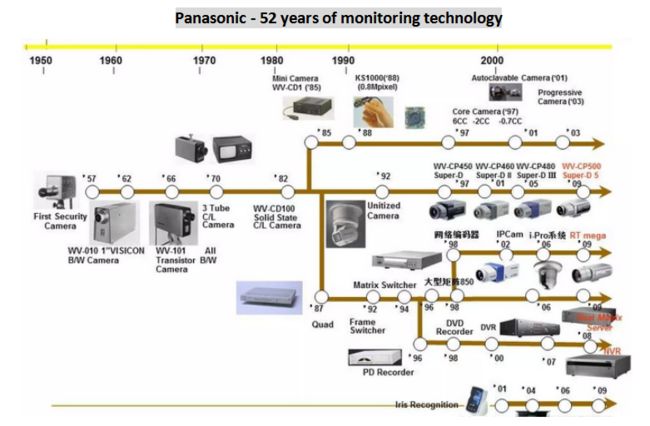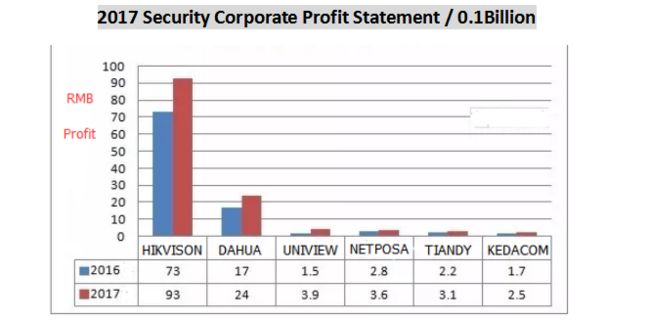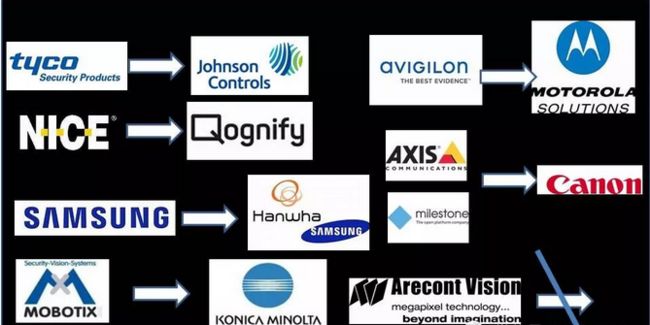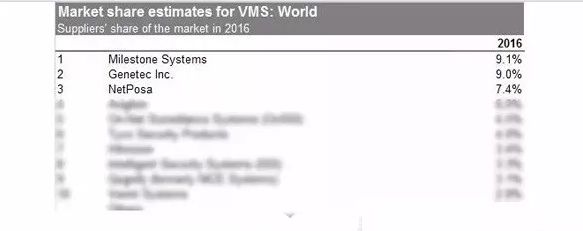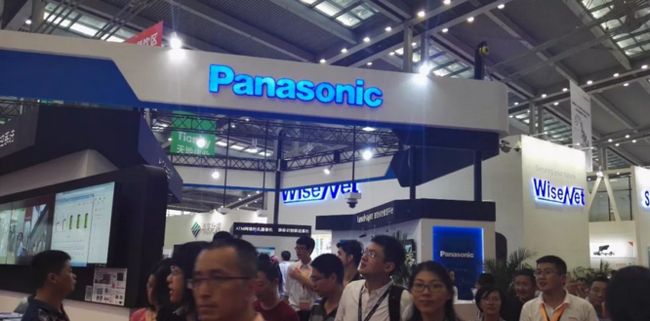Retreat?丨 Panasonic sold US$450 million for Suzhou Security Camera Factory!
At 12th, March 2018,according to Reuters, quoting the Nikkei Shimbun reported that Panasonic is considering the sale of a Chinese production plant, the company hopes to get more than 450 million U.S. dollars in revenue from this transaction. Obviously, the factory is Panasonic System Network (Suzhou) Co., Ltd., a high-tech enterprise jointly established by Panasonic and Suzhou Chuangyuan Investment Development Group in November 1995. It mainly produces security cameras and is sold all over the world. Panasonic is a world-renowned manufacturer of security products. As early as sixty years ago, Panasonic began to develop security surveillance cameras and became the market leader in video surveillance.
However, like Honeywell, Bosch, Sony, and Pelco, foreign high-level security companies, Panasonic is stronger than cameras and other hardware manufacturing itself, including manufacturing processes, imaging effects, etc. This is a significant advantage in the matrix era. The person who participated in a large-scale airport security construction in 2003 in China, told us Panasonic's dome camera, Pelco's PTZ camera, Honeywell's MAX matrix, Panasonic's time-lapse video recorder, and a very great system, without compatibility or platform issues. However, since the digitization that began in 2007, foreign companies have turned too slowly, or they still want to continue the scenery and dividends of the matrix era. They have not been able to complete the weaknesses of the VMS platform and have not complete solutions and services. The security market in China has developed rapidly. At the same time, they are losing ground. Hikvision, Dahua, Uniview, Kedacom, Tiandi, and Netposa have rapidly emerged. Today, they have even defeated their base camp.
As an initiator of network cameras, Axis is a foreign-funded company that is currently better than others. Other manufacturers are changing the formation to cope with the offensive of Chinese manufacturers. Before the Panasonic Suzhou plant, Honeywell's factory in Shenzhen also moved west to optimize costs. Following the previous AVIGILON turned to Motorola, looking at the international security market, there is not much left. Earlier GE Security, Pelco, later NICE, AVIGILON, Tyco, Samsung, MOBOTIX, Arecont Vision, either quit or prepare to exit or have already changed their banner!
Foreign security companies are still in the security manufacturing stage, and they are still fussing on individual hardware, such as wide dynamics, night vision, 4K/8K HD, while Chinese security companies have entered the security data stage, and they are effective under massive video data. The intelligent identification and search efficiency of video information is the key to effective video data mining and analysis. Not only did not enter the big data stage, foreign security companies did not even pay attention to the VMS platform. Even until 2015, Panasonic paid attention to the platform and acquired VideoInsight, a video software platform. Previously in the security industry, Tyco acquired Exacq, Canon acquired Milestone, AXIS developed its own VMS platform, and Siemens strategically cooperated with Milestone. However, the overall situation is hindsight, as the 2015 security landscape has been set, especially for Chinese companies. A full set of programs, and personalized, localized service capabilities, foreign companies can not compare.
Panasonic Security has always been stronger than hardware and lacks a video platform. After the acquisition, it intends to launch an overall video surveillance solution. It is clear that Total Solution is a clear direction for Panasonic's development. However, it is clear that the combination of the two did not give Panasonic a future of competitiveness and market opportunities (at least in China as such), or that it was too late to start, or that VMS must be Localized to be competitive.
China’s WMS platform No.1 the world’s No. 3 is NETPOSA. NETPOSA’s revenue in CITY of Peace reach hundred millionis actually very difficult for foreign companies to imitate because they don’t understand the national conditions, they cannot respond to customization, and the service team cannot keep up, Even the No.1 VMS platform of Milestone is also difficult to open market in China. AXIS's early ADP was difficult or specialized in hardware.
On the other hand, Panasonic shutting down the factory but it does not meandid not do security business, but focused on different things. In 2016, Panasonic announced that it will focus on smart cities and smart homes. In 2017, Panasonic’s face recognition technology won the second best performance in the benchmark test of NIST (National Institute of Standards and Technology); in 2018, Panasonic announced that it will release advanced learning technology overseas in July 2018. The face recognition server software, the software will be available in Japan in August 2018 ... Obviously, Panasonic did not give up security, but choose another way to expand security applications. But the road is not easy to go. For those who have used Panasonic products, the sentiments and high-quality products and services may still give them expectations.


